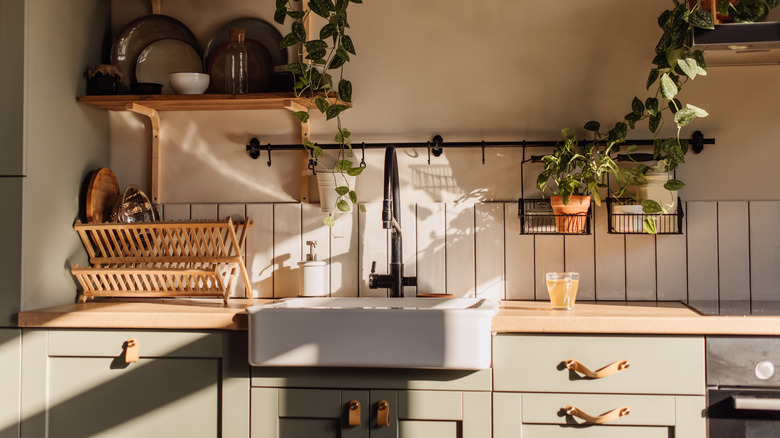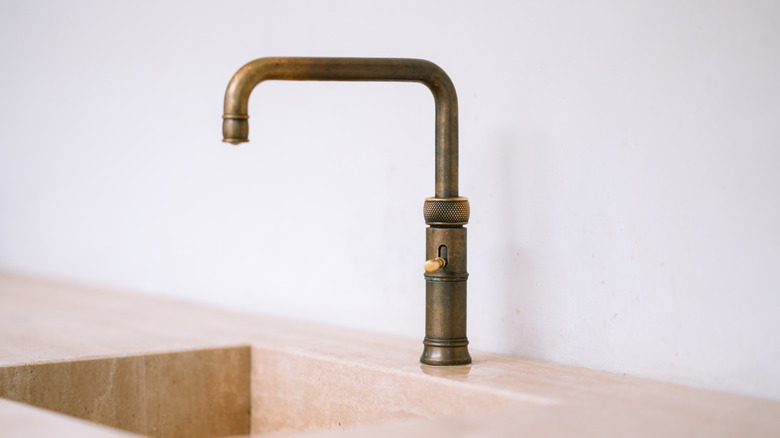The Metal Finish Mistake That Can Ruin A Kitchen's Look (And Function)
Patina may be the decor investment that only gets better as time passes, but there's a time and place to show off the beautiful wear and tear of your metals, and it is not your kitchen sink or countertops. This natural process of aging and oxidization is one of the reasons metals like copper, brass, bronze, or nickel are so coveted. When left unsealed, also known as a living finish, these materials gain a unique, organic appearance that speaks to their history and gives homes an older, lived-in feel instead of cookie-cutter modern. However, if you want to ensure the longevity of your kitchen, it's best to reserve living metals for less busy areas, or you might risk going beyond the patina into actual damage — think corrosion, rust, or tarnish — and ruin the look and function of your kitchen in the process.
The key to avoiding a decaying and unsafe kitchen while maintaining a stylish appearance is to think intuitively. Choose sealed metals that can withstand heavy traffic and humid conditions for your hardware as well as cooking, prepping and eating areas. Living metals, on the other hand, will look gorgeous and characterful in cabinet fronts and kitchen islands.
Why you may regret picking living metals for kitchen hotspots
Unless you're prepared to be extra careful with cleaning methods, routines, and products, then using living metals in busy areas like sinks and countertops is simply not a good idea. For one, you will need to polish them after nearly every use to remove ugly water spots and other possibly damaging and permanent stains. But, more importantly, unsealed or living metals will corrode much more easily.
Every metal is susceptible to corrosion, caused by exposure to humidity, oxygen, or harsh chemicals. The only way to stop it happening is by protecting them from the elements, which, since you can't very well cover your kitchen hardware with a blanket every day, is best achieved through specialized sealing. While the desirable, stylish patina will often only translate into a change in color and can even help prevent corrosion, flaking and an orange pigment are bad news.
When corroded, metal kitchen appliances may start releasing toxic particles into any food or water that comes into contact with them. Yes, there are helpful tricks for banishing rust stains around your kitchen, but preventing them is always the way to go. Sealed metals will help delay the process and, if resealed regularly, may not ever rust or corrode.

